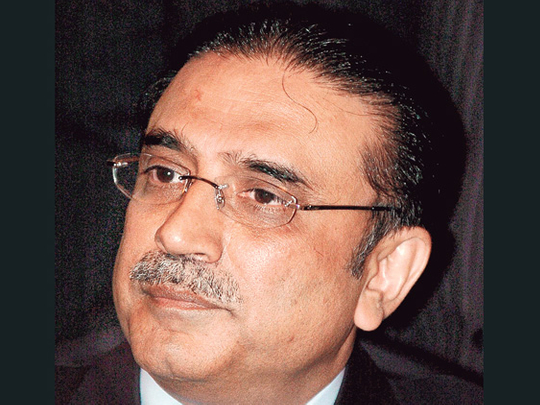
Even a cursory look at the political situation in Pakistan highlights a basic dichotomy. On the one hand, there are millions of people who toil ceaselessly to eke out a living at the subsistence level or maintain an income that enables a middle class family to have food on its plate, a shelter over its head and access to health care and education.
On the other hand, there is the fractious political class hopelessly embroiled in endless constitutional litigation and acrimonious polemics on issues that bear no relationship with the needs of the people. For all one knows, the people and the political actors could come from different planets.
Pakistan is a parliamentary democracy. Its parliament has two houses: the National Assembly elected directly on the basis of adult franchise and a Senate elected by the Electoral College comprising the national and provincial assemblies. This is the paramount forum for legislation. It provides guidance to the executive and ensures parliamentary oversight. But this supreme body has not been able to come to grips with matters that will ultimately decide Pakistan’s destiny.
In its chequered history, Pakistan has seen constitutional breakdowns, almost always as a result of military intervention. No coup d’état, however, escaped a robust challenge in higher courts that either validated a military putsch or termed it unconstitutional. Decisions of the highest courts since 1958, when the first coup took place, have handed down a mixed judicial legacy that often vitiates the national debate.
With General Ashfaq Pervez Kiyani as the chief of army staff, there has been little danger of another military intervention. Instead there is an unresolved face-off between the government and a proactive higher judiciary. President Asif Ali Zardari’s tenure may well be remembered mostly for a tussle with the Supreme Court that works with a messianic zeal.
The legal battles are conducted in a language that is abstruse for the people. So a reductionist version has taken root in the national psyche. Zardari and his team came to power under an umbrella provided by a dubious law known as the National Reconciliation Order (NRO) that granted immunity to hundreds of politicians and bureaucrats facing legal cases. Many of them had returned from self-imposed exile.
As they settled into government or politics, an aggressive media started chronicling tales of renewed corruption and misuse of executive power. The higher Judiciary got drawn into the tale as assorted petitioners asked it to review the legality of the NRO. In reductionist formulations, the executive led by Zardari is portrayed as plotting to curtail the independence of the Supreme Court; in the contrary view, the court is seen as determined to bring down the government.
As expected, the Supreme Court struck down the NRO as violative of the constitution and ordered reversal of executive actions taken under its provisions. This includes a letter sent to Swiss authorities terminating all action in a case involving Zardari. The court wants the government to inform the same authorities that the letter in question was not valid as its source — the NRO — was judged to be illegal.
Two successive prime ministers have not carried out the court’s order. Yousuf Raza Gilani had to resign even his membership of parliament after being held in contempt of court. The new prime minister, Raja Pervez Ashraf, another Zardari loyalist, is under the court’s instructions to appear before it on August 27 and inform it whether he would implement its order and write to the Swiss authorities.
The situation is dramatised by fevered speculation that Zardari wants an outright confrontation with the court and that he would accept disqualification of successive Pakstan People’s Party prime ministers by the court rather than permit a fresh reference to the Swiss authorities.
This view is not universally shared as there are some suggestions that Zardari may, in fact, consider an undefined middle course that pulls all sides back from the brink. This would be a major breakthrough as the real task is to stabilise Pakistan’s economy and civic order and enable it to proceed to the next general election that must be held by March 2013.
There is little doubt that the government has paid more attention to its phantom battles with the armed forces and the higher judiciary than to the three major concerns of the people: the deteriorating law and order situation; continuous decline of the economy; widespread corruption and cronyism. This perception undermines democracy as it alienates the people from the political class. The dream that a fresh election will herald a change is fading away amongst fears that elections will not be free and fair.
Pakistan’s best hope today is that the judgment of the Supreme Court can easily be implemented without compromising Zardari’s immunity as the head of state. His close associates have always maintained a state of siege by exaggerating the threat posed by the Swiss affair.
Tanvir Ahmad Khan is a former foreign secretary and ambassador of Pakistan to several states.











